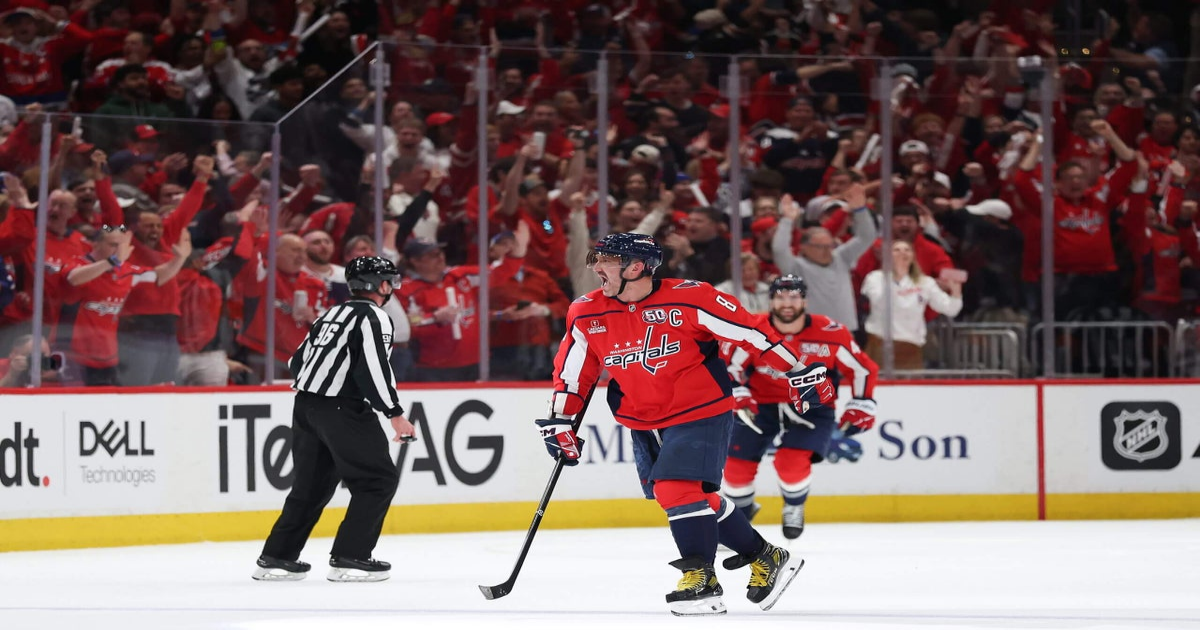WASHINGTON — Alex Ovechkin, speaking two days before the start of his team’s first-round Stanley Cup playoff series against the Montreal Canadiens, was unbothered.
The Washington Capitals had just come off a lackluster stretch at the end of the regular season — bad goaltending and zero stakes led to eight losses in 12 games. Not a huge deal. Also not optimal.
“I’m pretty sure as soon as the puck drops, everybody going to be in motivation mode and beast mode,” Ovechkin said on Saturday.
Turns out he was correct. Ovechkin scored two goals, assisted on another and generally acted as the tone-setter in Washington’s 3-2 overtime win over Montreal at Capital One Arena.
ALEX OVECHKIN WINS IT FOR WASHINGTON 🔥
It’s the first time in his career he has scored a playoff OT goal.
— The Athletic (@TheAthletic) April 22, 2025
Thompson’s return
Capitals goalie Logan Thompson, in his first action since April 2, gave them exactly what they needed: a steady hand. In the seven games Thompson missed with an upper-body injury, Charlie Lindgren, Clay Stevenson and Hunter Shepard combined for an .859 save percentage and averaged about one goal saved below expected per game. In the postseason, that wasn’t going to fly; getting Thompson back — shaky as he’d been in February and March — was crucial.
He delivered, especially in a 13-save first period. Montreal’s best chances came on a power play, and Thompson came up big, stopping Nick Suzuki’s high-blocker attempt and gloving another shot by Patrik Laine. If Thompson regains anything close his early-season form — the stuff that initially put him on Vezina watchlists and earned a fat new contract — we’re going to be in for a short series.
Rookie boost
The first goal of the game was an instance of Washington’s youngest and oldest players each doing what they do best.
Ryan Leonard, a 20-year-old rookie who just might be the NHL’s next super-pest, put the Caps on the power play with 3:02 remaining in the first period. Leonard was buzzing around the net and effectively baited Guhle into some post-whistle contact. A mini-scrum ensued, and the Canadiens wound up taking the extra penalty. Ninety-six seconds later, after a cross-ice feed from Wilson, Ovechkin scored on a blast from the left circle. Imagine that.
Even before that sequence, Leonard didn’t look out of place. He was credited with one shot and another attempt in the first period and was generally noticeable. He’s the player most likely to exit the lineup once Aliaksei Protas returns from injury, so some extra urgency on Leonard’s part would be understandable.
Ovechkin’s hit parade
With a little under five minutes left in the second period, there was a loose puck in the Canadiens zone. Cole Caufield was the closest man to it, except Ovechkin was second-closest. As soon as Caufield realized that, he suddenly had no interest in that loose puck deep in his own zone. Caufield basically conceded it to Ovechkin, who outweighs him by 63 pounds, and backed off the puck.
Ovechkin, however, also had no interest in the puck. He continued past it and plowed into Caufield, sending him airborne.
It was Ovechkin’s sixth hit of the game with 25 minutes left in regulation. He only had one more by the end of the second period and, most importantly, none in the third.
The Capitals leaned into their physical advantage early in this game in a big way. And then, for whatever reason, they stopped, and the Canadiens took over the run of play in the third, outshooting the Capitals 14-7 in third period.
About that …
Canadiens’ third-period comebacks
The Canadiens had an 8-12-3 record from Dec. 31 onward when trailing after two periods in the regular season. The next closest team in third-period comeback wins over that span had five.
Prior to that date, the Canadiens were 0-13-0 in games they trailed after two periods.
This is what got the Canadiens to the playoffs: an ability to stick with their game and take advantage of teams sitting on leads. Not exactly a sustainable formula, but it is part of this team’s DNA and they showed it again in Game 1.
And Nick Suzuki’s tying goal exemplified why the Canadiens have been able to do this with such consistency. Hanging on to the puck with chaos all around him as the Capitals scrambled to recover in front of their own net, having the presence of mind and poise to wait for that scramble to create an opening for him to shoot the puck through: that is the kind of poise the Canadiens have had in these situations for months.
(Photo of Alex Ovechkin: Patrick Smith / Getty Images)
